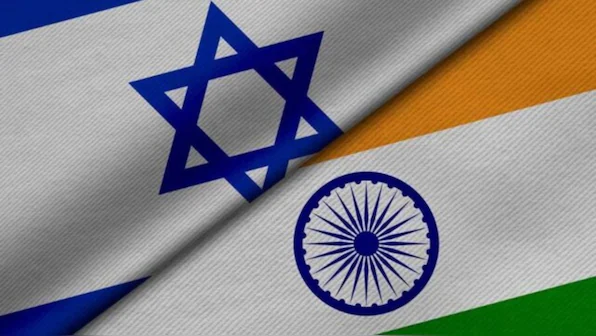India and Israel Cement Strategic Defence Partnership with New Institutional Framework
- MGMMTeam

- Jul 24, 2025
- 3 min read
In a major diplomatic and strategic development, India and Israel have agreed to set up a long-term institutional framework to enhance their defence cooperation. The agreement was reached during a high-level meeting in New Delhi between India’s Defence Secretary, Rajesh Kumar Singh, and Major General (Retd.) Amir Baram, Director General of Israel’s Ministry of Defence. This move marks a decisive shift from transactional military ties to a more structured and enduring strategic partnership between the two countries.

The discussions held on July 22 and 23, 2025, centered on strengthening existing collaboration in the defence sector, reviewing progress from the previous Joint Working Group meeting in 2024, and charting a more cohesive path forward. Both sides acknowledged the deep synergy in their defence capabilities and expressed a shared desire to institutionalize mechanisms that would foster joint research and development, co-production, and knowledge exchange in key defence domains.
Mutual Condemnation of Terrorism Strengthens Strategic Resolve
A critical part of the dialogue focused on counter-terrorism cooperation. Major General Baram unequivocally condemned the terrorist attack in Pahalgam on April 22, reiterating Israel's solidarity with India and its firm support in the global fight against terrorism. India, in return, condemned the Hamas-led attacks on Israel that took place on October 7, 2023, and called for the immediate release of Israeli hostages. This reciprocal condemnation not only underscored the ideological alignment of both nations in their battle against extremism but also reinforced the strategic trust underpinning the partnership.
Israel Calls India a Key Strategic Ally
During the bilateral talks, Israel officially referred to India as a “key strategic ally,” with Major General Baram praising the resilience and maturity of the relationship that has grown through years of collaboration and shared threats. He highlighted that the evolving geopolitical landscape had created new opportunities for Israel and India to advance their defence-industrial cooperation.
Baram’s visit to India also included engagements with Indian defence companies, where the focus was on exploring joint ventures, expanding the defence manufacturing ecosystem, and strengthening existing missile and drone development partnerships. He showcased Israel’s operational capabilities in real-world combat zones—such as operations against Iranian drone threats—as examples of Israel's cutting-edge defence innovations that could be adapted and co-developed with India.
A History of Deep Defence Engagement
India and Israel have built a robust defence partnership over the years, characterized by the procurement and co-development of advanced weapon systems. One of the most prominent examples is the Barak-8 Long Range Surface-to-Air Missile (LR-SAM) system, a joint initiative that has significantly bolstered India’s air defence capabilities. This system was recently credited with intercepting Iranian drones during maritime operations, showcasing its real-world effectiveness and India’s technological contribution.
Additionally, India has acquired and operationalized various Israeli drone platforms, including the Heron UAVs, which have been instrumental in surveillance operations along India’s borders. These acquisitions have been complemented by collaborative programs in intelligence sharing, cyber defence, and electronic warfare.
India’s push for defence indigenization through the "Atmanirbhar Bharat" (Self-Reliant India) initiative has opened new avenues for deeper cooperation. Projects such as "Project Kusha"—India’s indigenous long-range missile defence system—and the AI-powered "Project Akashteer" air defence command network indicate the country’s evolving capabilities. These systems are designed to complement existing Israeli technologies, creating opportunities for joint research and next-generation platform development.
Strategic and Economic Dimensions of the Alliance
While the defence partnership remains the core of the India-Israel relationship, both countries are also expanding their economic and diplomatic ties. Israel and India are in the final stages of concluding an investment protection agreement that will further accelerate economic collaboration. Bilateral trade crossed $4 billion in 2024, and sectors such as agriculture, water management, cybersecurity, and innovation have emerged as strong pillars of cooperation.
The convergence of strategic goals extends into multilateral platforms as well. Both nations are members of the I2U2 Group—comprising India, Israel, the United Arab Emirates, and the United States—which focuses on infrastructure development, food and water security, and technology cooperation. In this context, the defence partnership serves as both a deterrent to regional instability and a framework for geopolitical coordination.
Conclusion: A Future Anchored in Strategic Trust
The decision to establish an institutional framework marks a watershed moment in India-Israel relations. It transforms the dynamic from a buyer-seller equation into a full-spectrum strategic alliance that spans research, production, operational collaboration, and shared geopolitical vision. At a time when both nations face complex regional threats—from state-sponsored terrorism to asymmetric warfare—this partnership offers a model of how democracies can jointly develop resilient, future-ready defence ecosystems.
As India advances its ambition of becoming a global defence hub and Israel continues to lead in innovation and military technology, the institutionalization of their cooperation could set the stage for one of the most consequential security partnerships of the 21st century.
(Sources: Firstpost, TOI, Economic Times)




Comments